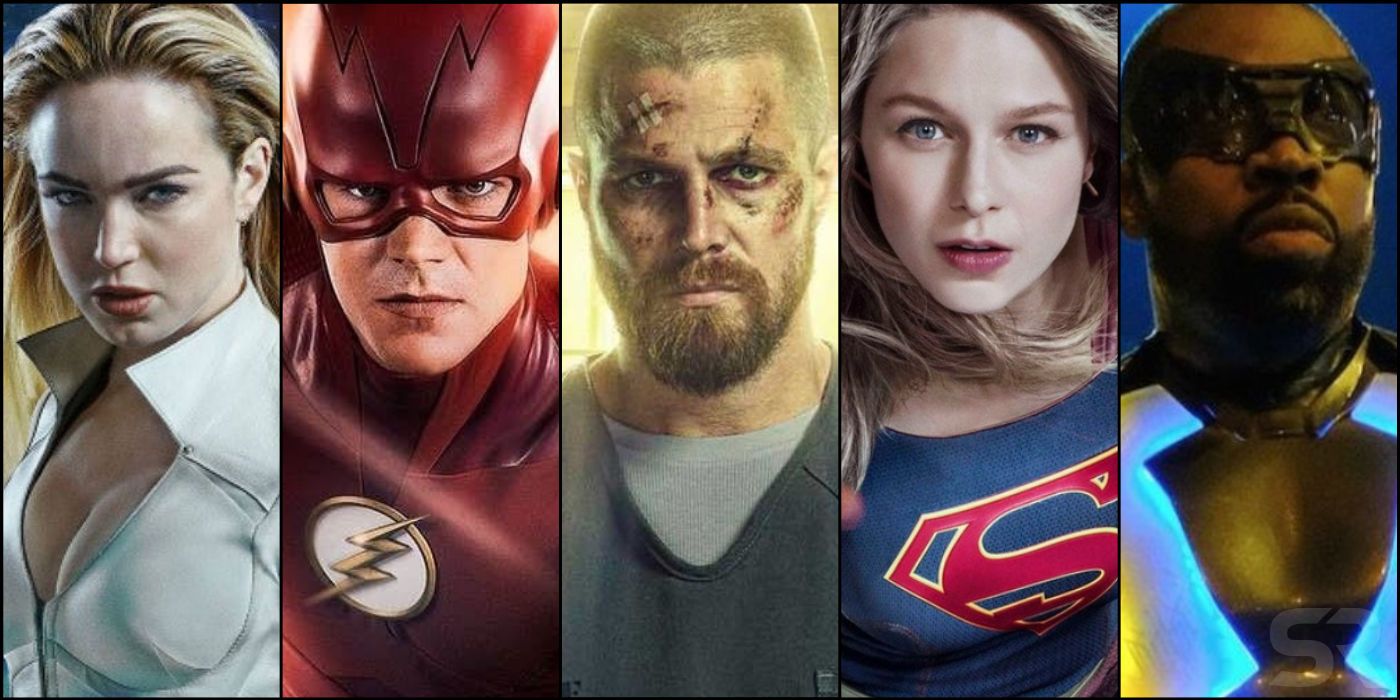
All the Arrowverse shows make up a significant portion of The CW's library, and the time has come to rank them all. While originally notable for hosting dramas aimed at young adults, The CW has become more famous in recent years for its comic book adaptations. While most of these shows have been based on various DC Comics heroes, The CW has also found success adapting the horror/comedy comic iZombie as well as offering a decidedly dark take on Archie Comics with Riverdale.
Still, the Arrowverse - the shared universe made up of Supergirl, Arrow, The Flash, and Legends of Tomorrow - is The CW's most popular creation and one of the biggest shared universes ever created for the medium of television. Black Lightning - a new DC Comics series which premiered earlier this year - is not officially part of the Arrowverse, but it's widely considered to be a sister show to the other series. Between all five of these shows, it cannot be denied that The CW offers a wide variety of superheroic material for viewers to consider.
Related: Arrowverse's THREE Alternate Futures: 2038, 2042 & 2049 Explained
Granting that individual tastes are subjective and certain shows will just never appeal to certain people for a variety of reasons, it is still possible to consider and compare each show critically. The following ratings are based upon the merits of the series' writing and direction, the quality of the actors' performances, and how well the show works for what it is. What that in mind, here's where the latest seasons of each Arrowverse show ranks.
5. Arrow Season 7
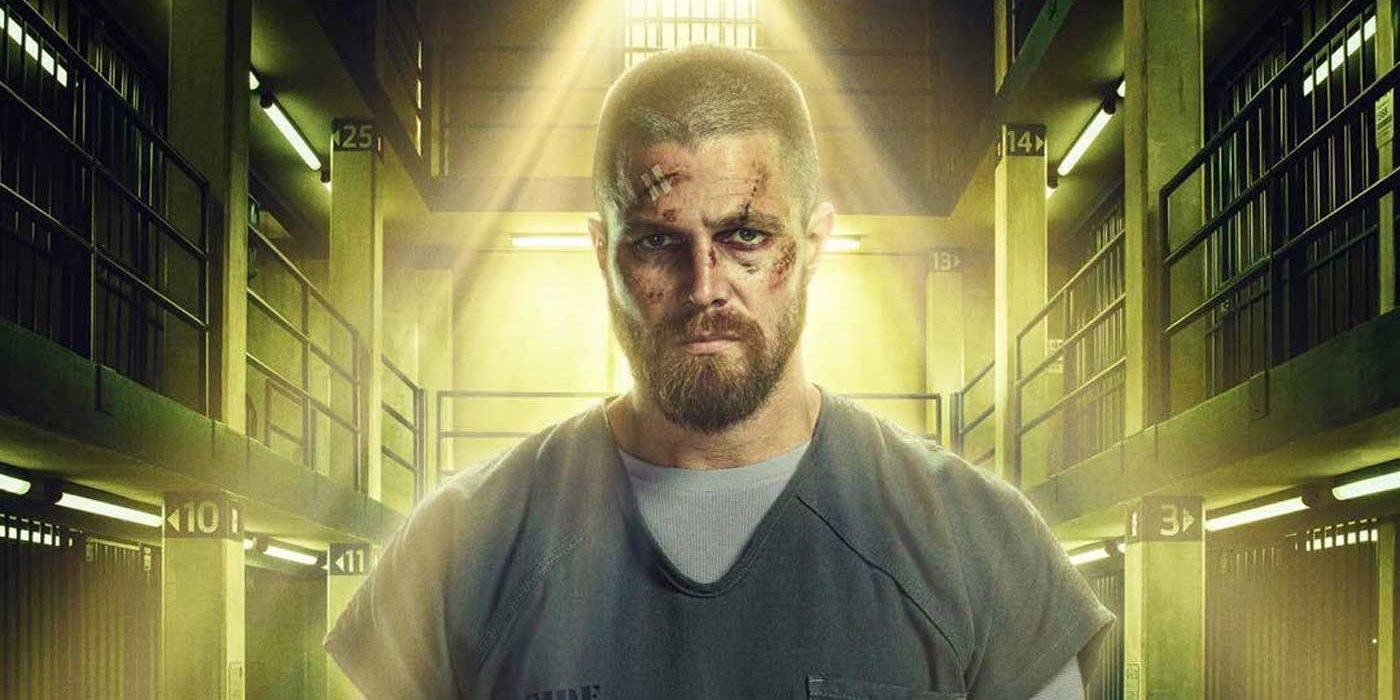
The good news for Arrow fans is that Arrow season 7 has been a marked improvement over the lackluster season 6. The bad news is this still leaves Arrow as being mediocre rather than good by any reasonable standard. While the show's cast continue to function well as an ensemble, the scripts for season 7 have left some characters with little to do. A larger issue, however, is that the general story and fine details of Arrow season 7 have been largely illogical - a major problem for a series that prides itself on its gritty realism.
The Longbow Hunters - the chief new villains of Arrow season 7 - are a prime example of this. In the comics, the Longbow Hunters were a group of Green Arrow's enemies, brought together for the express purpose of killing Green Arrow once and for all. In the reality of Arrow, the Longbow Hunters are an legendary trio of assassins who are hired by crime boss Ricardo Diaz to help him with his plans to destroy Star City. What is meant to be a nod to the comics is rendered wholly nonsensical by the fact that none of the Longbow Hunters have ever encountered Green Arrow before and none of them utilize a longbow in combat. So why are they called the Longbow Hunters?
Related: Arrow May Finally Deliver On The Show's Suicide Squad Promise
This is just one of the many problems Arrow has had with making sense in season 7. The season's low-point came with "The Slabside Redemption" when Ricardo Diaz secretly broke into Slabside Penitentiary to kill Oliver Queen before he was to be released from prison. Oliver cannot catch a break in his efforts to warn the prison guards of Diaz's presence, whereas Diaz is allowed to freely wander the prison unchallenged. This culminates in a scene where Diaz addresses a prison yard full of convicts while waving a gun around encouraging rebellion, despite the presence of several guards, who ultimately just tell Diaz to be quiet.
Despite these issues, Arrow has improved dramatically in terms of giving its core cast believable subplots and some great speeches to go with their emotional beats. Stephen Amell gives a spirited performance showcasing Oliver Queen's various internal struggles to survive in prison while maintaining his sense of self. Juliana Harkavy perfectly captures Dinah Drake's conflict between her desire to build-up the police department and her loyalty to her friends who are skirting Star City's anti-vigilante laws. And Emily Bett Rickards' performance as Felicity Smoak transforms into a scarier, stronger woman was truly terrifying at times. It is unfortunate that the audience must dig through a lot of slag to reach these golden moments.
4. Black Lightning Season 2
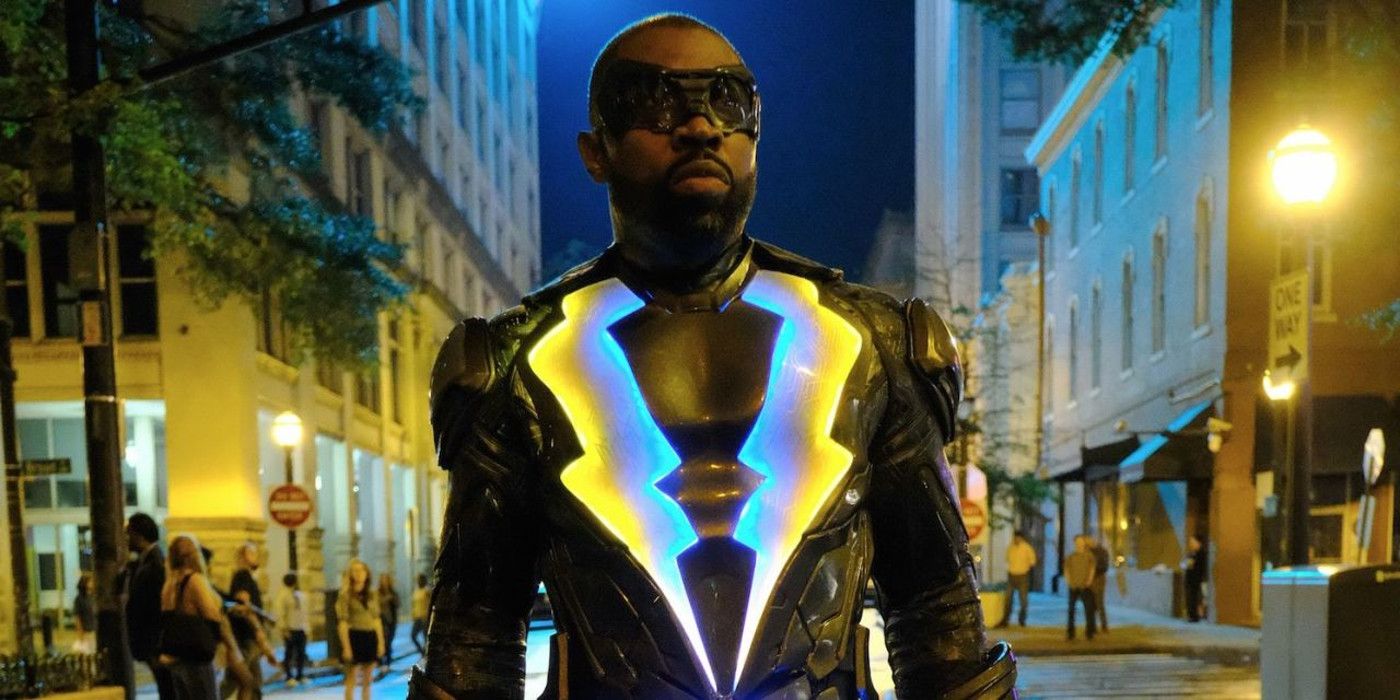
The best thing about Black Lightning is also, paradoxically, its biggest sin. As the series started season 2, it did a fantastic job in giving each member of the core cast their own substantial subplot that tied into further developing the world we had only begun to glimpse in season one. At the same time, the show tried too much early on and many of these subplots had to be placed on hold as the larger central narrative was developed. The story of Jefferson "Black Lightning" Pierce himself is a fine example of this.
As Black Lightning season 2 opened, Jefferson Pierce found himself under fire because he had been absent from Garfield High during an active-shooter incident. Of course Jefferson had been there as Black Lightning, but he could hardly tell the school-board that. Jefferson ultimately resigned as principal to pacify the school-board, but was allowed to continue working as a teacher in order to ease the transition as a new principal took over. It was unclear, however, whether or not Jefferson was still working after an argument with the new principal which ended with him being told he could do as he was told or he could quit. Jefferson wasn't seen at the school for the rest of the season, but he never said whether or not he'd resigned.
Related: Black Lightning's Season 2 Setting Up Static Appearance?
Many of Black Lightning season 2's subplots have ended this way, fizzling out with no explanation. Another fine example of this is introduction of Looker - a racist metahuman with strange powers to control and empower others similar to a classic vampire. Looker proved an interesting and horrific idea for a new villain but she was easily defeated after only two episodes. This seemed to make her introduction to the series and the two episodes centered around her completely pointless.
What saves Black Lightning is a particularly strong ensemble, who have sold the storyline even as the focus of the story has meandered from episode to episode. China Anne McClain added a surprising depth to Jennifer Pierce's search for identity as she mastered her new superpowers, in a storyline that's broad outline has fueled many X-Men comics yet seemed brand new thanks to McClain's performance. Marvin "Krondon" Jones III delivered a similarly nuanced performance as crime boss Tobias Whale, which invites favorable comparison to Vincent D'onofrio's portrayal of Wilson Fisk on Daredevil. Jones' take on Whale frequently steals the show, presenting the kind of villain you can't help but love and hate at the same time.
3. The Flash Season 5
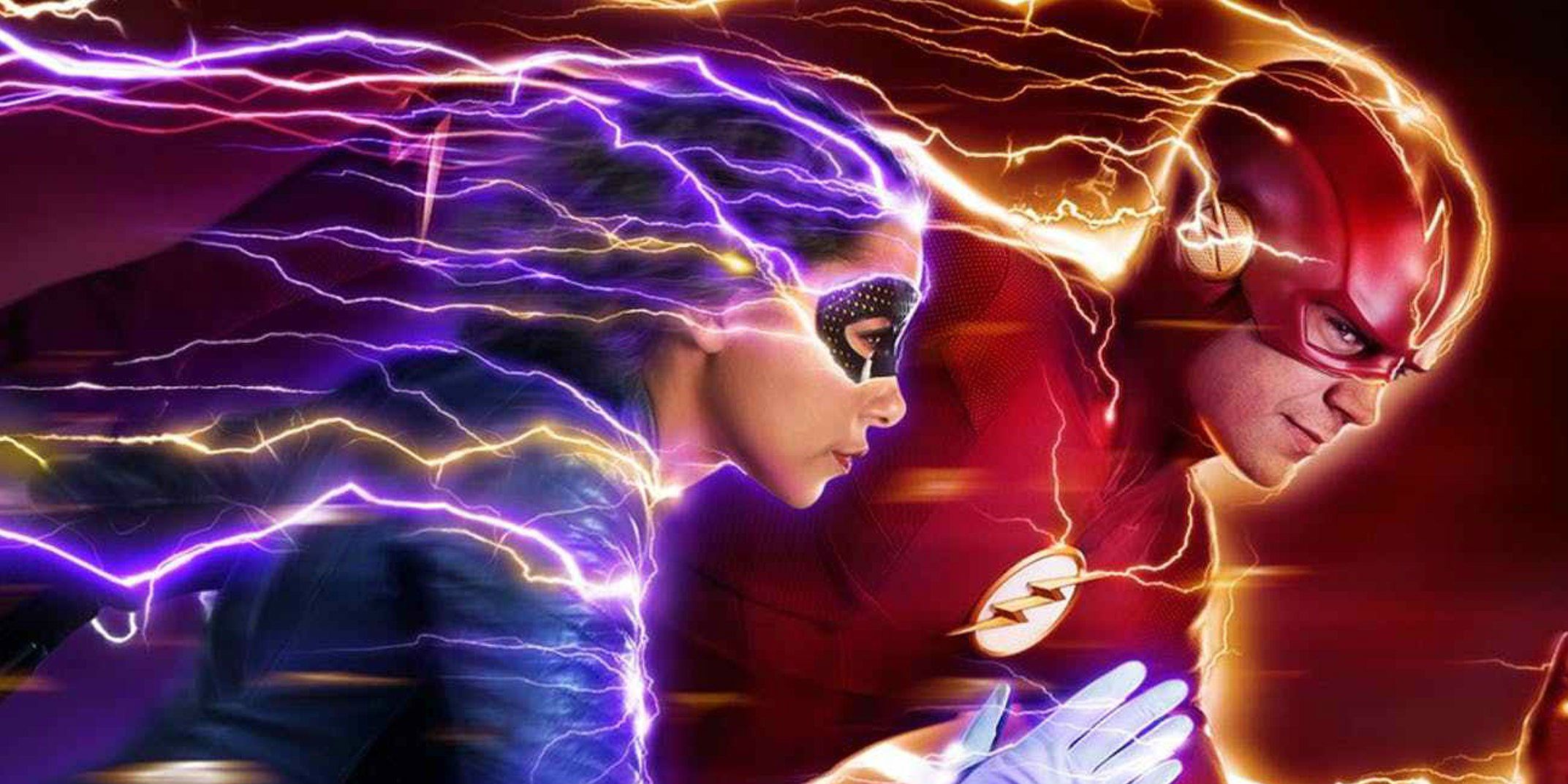
The Flash remains the steadfast workhorse of the Arrowverse. More light-hearted than Arrow, less serious than Supergirl, and less dependent on comedy than Legends of Tomorrow, The Flash has run a safe middle-ground that makes it accessible to the widest audience possible. It's no surprise then that The Flash is The CW's most popular series but its need to appeal to a mass audience has also made it the least likely of the Arrowverse series to take chances pushing beyond its formula. As such, The Flash season 5 offered the least amount of surprises of all The CW superhero series this fall.
On the other hand, there is a case to be made for the old adage "If it ain't broke, don't fix it," and the things The Flash does well continued to be well done throughout season 5. The ensemble cast play off of one another expertly and the show's writing is generally excellent beyond a few quirks forced into the narrative for the sake of drama. For instance, in "The Icicle Cometh," Barry Allen forgets that his powers don't function in areas of extreme cold, as he knowingly runs into a force-field in the process of reaching Absolute Zero. When the rest of Team Flash teleports in after him and is similarly pained by the temperature, the villain Icicle comments, "You people are not as smart as I thought."
Related: The Flash's [SPOILER] Twist Hints At A New Legion Of Doom
This stunning lack of foresight on the part of our heroes was necessary, however, to force a circumstance where Caitlin Snow could bring her repressed Killer Frost persona to the surface to save her friends. Contrived as the episode was, it still led to a triumphant moment for Caitlin's character and a wonderful performance from Danielle Panabaker, who thrived this season after having finally been given a storyline of her own that didn't center around a romantic relationship. Jessica Parker Kennedy gave a similarly notable performance as Nora West-Allen, giving charm and earnestness to a character who could have quickly become twee and annoying.
Despite this, The Flash season 5 loses points for its lackluster villains. The Flash's season 5 villain Cicada - a serial killer with a hatred of metahumans and a dagger that lets him negate their powers - has been underwhelming, largely due to actor Chris Klein being given little to do in the role but glower and growl menacing. To be fair, Klein does this quite well, but Cicada just isn't as exciting as previous big-bad villains like the Thinker and Reverse-Flash. Even the more interesting villain-of-the-week characters weren't as engaging this season, with the horrifying Ragdoll not being half as haunting as the character from the comics, despite the perfect casting of contortionist Troy James in the role.
Page 2 of 2: The Best Arrowverse Shows This Season
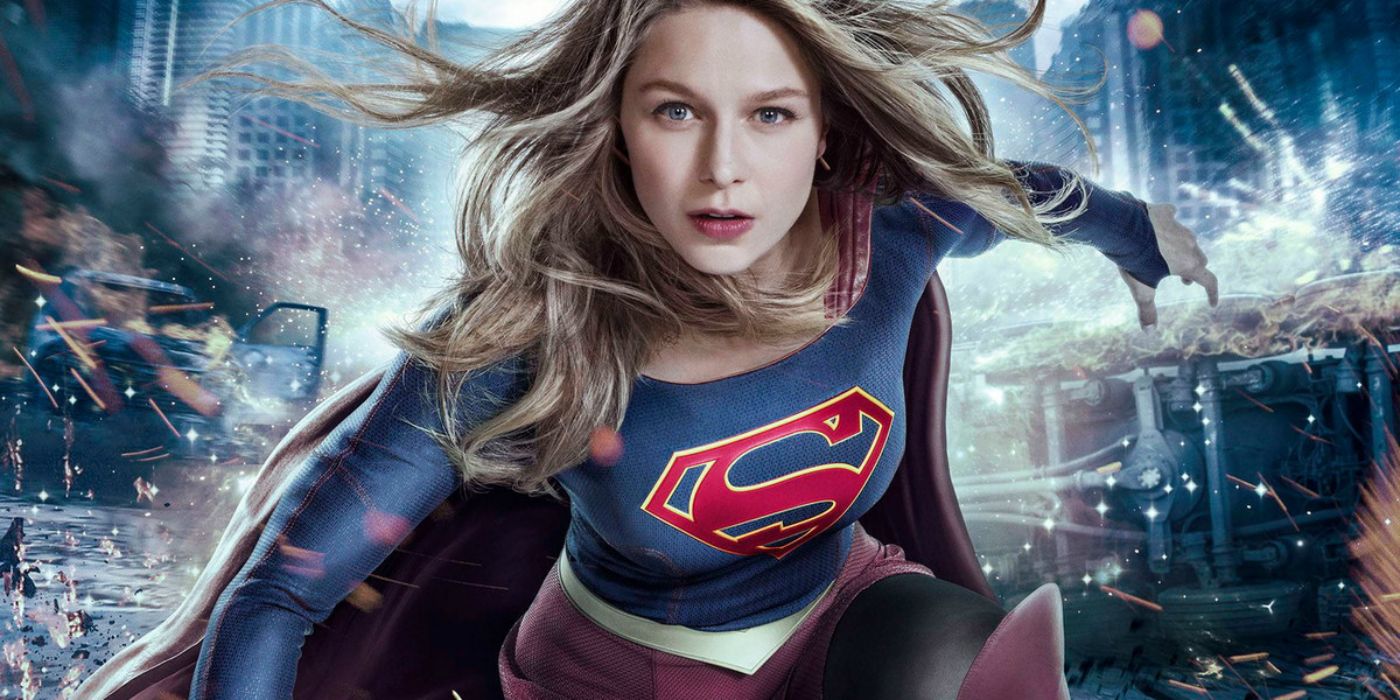
2. Supergirl Season 4
Superhero comics were built on a foundation of fighting for social justice, with the very first Superman comics featuring the Man of Steel battling abusive husbands and corrupt bankers. Supergirl season 4 continued this legacy, crafting a parable for the real-world conflict regarding how governments treat immigrants and refugees. The action of the season pitted Kara Danvers against three enemies she couldn't punch or reason into submission - hate, fear, and public opinion.
Supergirl brilliantly created a new villain who represented all three of these forces in Agent Liberty. Supergirl season 4's third episode, "Man of Steel," detailed how college professor Benjamin Lockwood became radicalized against alien immigrants due to a series of unfortunate events. By the episode's end, an embittered Lockwood found himself leading both a militia called The Children of Liberty against aliens in general and a media campaign against Supergirl herself. Devoting an entire episode to its villain's origin story proved a bold move that paid off dramatically, exploring Lockwood's motivations in a sympathetic fashion while still exposing the logical flaws in his arguments.
Related: Supergirl Theory: Lex Luthor Has Been The Villain Since Season 1
This level of craft and care went into every aspect of Supergirl's writing in season 4, with each character coming to symbolize a different aspect of society and how they deal with the problems posed by hate and fear. James Olsen represented the media at large, even as he struggled with his Guardian persona being adopted by the Children Of Liberty as a symbol of their movement. Lena Luthor likewise represented both big business and the scientific community, as she tried to find a means of giving humans superpowers to even the playing field between human and alien workers. Each member of the show's ensemble is to be commended for how well they moved their characters in exciting new directions and uniformly made the changes over the past year seem like natural extensions of who they had been.
What truly set Supergirl ahead of the other CW superhero shows, however, was a willingness on the part of the writers to suggest that Kara's simple philosophy and belief in setting a good example might not be enough this time. While Kara condemned the level of force favored by violent vigilante Manchester Black, the show acknowledged that Manchester's torturing the Children of Liberty led him to Agent Liberty faster than Kara's methods, which were ultimately dependent on precognitive dreams and knowledge from the future. Supergirl's season 4 midseason finale also ended on a dramatic high note, with Supergirl watching in horror as a crowd of Lockwood's followers rallied and cheered him as he was taken to jail, rather than being shamed and embarrassed as Kara thought they would be once Lockwood's identity and crimes were exposed to the public.
1. Legends of Tomorrow Season 4
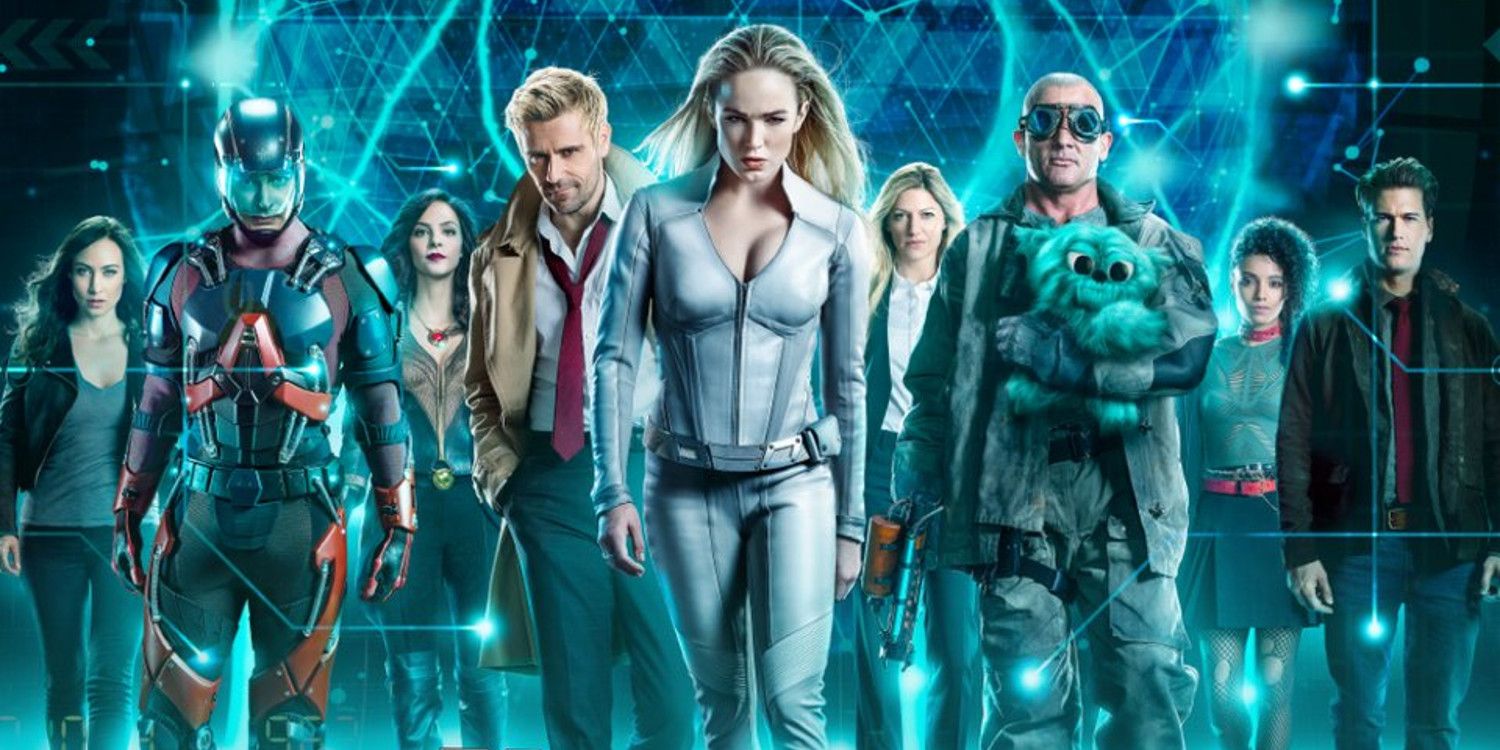
Legends of Tomorrow seems to be the most polarizing of the Arrowverse shows. There is little middle-ground between the show's fans and its detractors. Either you hate the show's heavy dependence on humor or you love it. Those who love it have had a lot to love about Legends of Tomorrow season 4.
Even as Legends of Tomorrow has taken on some fairly serious subject matter with the hunt for various dangerous magical creatures, it still kept things funny and enjoyable throughout. It did this with twisted dark humor, such as unicorns being revealed as murderous predators in the Legends of Tomorrow season 4 premiere. It did this with character-based comedy, such as warlock John Constantine being forced to work as a camp counselor alongside enthusiastic Eagle Scout Ray Palmer. And it did it with some clever Easter eggs, such as Constantine's spirited defense of everyone who ever played a Bard in Dungeons and Dragons, while noting the greatness of the singer Sting.
Related: Legends of Tomorrow Midseason Finale Explained and Unanswered Questions
For better and for worse, Legends of Tomorrow embraces the entirety of the DC Universe in all of its lunacy and emulates it like no other superhero show has before. Does it make sense that the first Viking colony in the United States might start to worship a neon-blue stuffed toy as a god? Not really. Is it any more ludicrous that the idea of an Egyptian pharaoh being continually reborn across time and space as a hawk-themed superhero? Not really.
Given that, it would be fair to say that Legends of Tomorrow perfectly captures the spirit of its source material. The show's ensemble cast work together like a finely-oiled machine and it is rare to have a wrong note struck in the show's metaphorical symphony. Let the haters hate. The show's fans will continue to heartily cheer "Praise Beebo!" and enjoy the hilarity.
More: Every Superhero In The Arrowverse
from ScreenRant - Feed https://ift.tt/2ElZ4BV


0 Comments